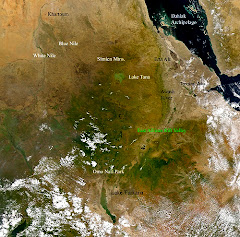Monday, August 31, 2009
Dad
My Dad died June 25th, this past weekend we went over to his home and sifted through his belongings. It was a bit strange and evoked many memories. Finding some of his belongings that had special meaning to them was fun but also sad. Looking through old photos it was like living my life over again in those brief moments when I was flipping from photo to photo. Finding some old cassettes of music and listening to them also solicited the same emotion. A life lived and remembered. He is gone but his legacy goes on. As I think of my Dad, who was not perfect as none of us are, and what he meant and means to me still, I cant imagine going through life without one. What must be the sorrow of an orphans heart.
Tuesday, August 18, 2009
Thoughts for the day
Can you imagine your children so hungry that you offer to give them to strangers- just so they will live?
Bob Pierce once said, " Don't fail to do something just because you can't do everything." These are wise words to anyone overwhelmed with the magnitude of human suffering in our world. We are not asked to help all of them at once, just one at a time.
Bob Pierce once said, " Don't fail to do something just because you can't do everything." These are wise words to anyone overwhelmed with the magnitude of human suffering in our world. We are not asked to help all of them at once, just one at a time.
Thursday, August 13, 2009
One such child
In the same chapter where the idea of "Somebody Else's Child" is shared, Richard shares this personal story where this really hit home hard.
"One Such Child"
And if anyone gives even a cup of cold water to one of these little ones because he is my disciple, I tell you the truth, he will certainly not lose his reward. Matthew 10:42
A few years back I had my own encounter with somebody else's child. I was in Gujarat, India, about six months after the massive 2001 earthquake. We were leaving the last village at the end of the final day of a ten-day, multi-country trip. I was exhausted and looking forward to getting back to the hotel and then back home the next morning. But something happened. As our car began to pull away, and a throng of people crowded around to wave good-bye, a desperate woman rushed up to my window with a little boy in her arms. She held him out to me with a pleading look in her eyes that said, Please help me! Please help my little boy. To my absolute horror, I then saw that her little boy had no feet. His legs had both been amputated below the knee. And then, just as quickly, she was gone, our car was on the road, and we were headed back to the hotel.
Gradually I put her haunting face out of my mind. I was tired. World Vision had helped so many thousands in Gujarat in the months after the earthquake; we couldn't be expected to help every child. That last boy was not my responsibility, I reasoned, and so I tried to forget what I had seen as I flew home the next morning.
Over the next few days, my body readjusted from jet lag, and I returned to the daily demands at my office, but I could not get the disturbing image of this mother and child--someone else's child--out of my mind. It nagged at me and challenged me. Was I just a hypocrite, always talking about the importance of helping every child but not practicing what I preached?
One night at dinner I told my own kids about what I had seen and how it was troubling me. "Can't you do something, Dad?" they asked. That very night I sent an e-mail to our team in India, describing the boy and asking if they could find him, one child in the midst of a billion people. I didn't know his name, and I could not remember even the name of the village where I had seen him. But two weeks later I received an e-mail with a photo of six-year-old Vikas and the story of what had happened to him. During the earthquake, his house had collapsed on him, crushing both of his legs and injuring his mother. With no immediate medical care, by the time help finally arrived, days later, amputation was his only option. To save his life, a relief medical team from Korea amputated both of his legs. Unable to walk, Vikas now could only crawl on all fours or be carried everywhere by his mother or father. So when I arrived in his village that day, a desperate mother waited for her moment and rushed to my departing car, hoping against all hope that maybe this man from America could help.
Believing that He could help--isn't that what grieving parents did when Jesus passed through their village? Like the father who approached Jesus, knelt before Him, and said, "Lord, have mercy on my son"? (Matthew 17:15)
I asked our team in India whether we could help him. The answer came back that he would need another surgery and then prosthetic limbs. It would cost three hundred dollars; would the U.S. office authorize the expenditure? they asked.
"No," I replied. "World Vision would not pay for this; Rich Stearns will pay for this." You see, this was personal. Arguably, in my role at World Vision, I was already doing more than most people can do to help children in need. But God wanted more than my institutional programs and strategic responses; He wanted it to be as a personal for me as it always is for Him. Children are not statistics to God. And so I sent the money.
Four months later, over the Christmas holiday, I was muttering under my breath; someone had sent me a large e-mail file that was taking far too long to download on my home computer. Finally, I opened the file with irritation and saw that it was a photograph--of Vikas, holding his mother's hand and standing on his new legs. I wept as I stared into the eyes of somebody else's child, a little boy I had never actually met but whose predicament had become so very personal to me.
Today, his picture hangs in my office in Seattle to remind me that every child is precious.
"One Such Child"
And if anyone gives even a cup of cold water to one of these little ones because he is my disciple, I tell you the truth, he will certainly not lose his reward. Matthew 10:42
A few years back I had my own encounter with somebody else's child. I was in Gujarat, India, about six months after the massive 2001 earthquake. We were leaving the last village at the end of the final day of a ten-day, multi-country trip. I was exhausted and looking forward to getting back to the hotel and then back home the next morning. But something happened. As our car began to pull away, and a throng of people crowded around to wave good-bye, a desperate woman rushed up to my window with a little boy in her arms. She held him out to me with a pleading look in her eyes that said, Please help me! Please help my little boy. To my absolute horror, I then saw that her little boy had no feet. His legs had both been amputated below the knee. And then, just as quickly, she was gone, our car was on the road, and we were headed back to the hotel.
Gradually I put her haunting face out of my mind. I was tired. World Vision had helped so many thousands in Gujarat in the months after the earthquake; we couldn't be expected to help every child. That last boy was not my responsibility, I reasoned, and so I tried to forget what I had seen as I flew home the next morning.
Over the next few days, my body readjusted from jet lag, and I returned to the daily demands at my office, but I could not get the disturbing image of this mother and child--someone else's child--out of my mind. It nagged at me and challenged me. Was I just a hypocrite, always talking about the importance of helping every child but not practicing what I preached?
One night at dinner I told my own kids about what I had seen and how it was troubling me. "Can't you do something, Dad?" they asked. That very night I sent an e-mail to our team in India, describing the boy and asking if they could find him, one child in the midst of a billion people. I didn't know his name, and I could not remember even the name of the village where I had seen him. But two weeks later I received an e-mail with a photo of six-year-old Vikas and the story of what had happened to him. During the earthquake, his house had collapsed on him, crushing both of his legs and injuring his mother. With no immediate medical care, by the time help finally arrived, days later, amputation was his only option. To save his life, a relief medical team from Korea amputated both of his legs. Unable to walk, Vikas now could only crawl on all fours or be carried everywhere by his mother or father. So when I arrived in his village that day, a desperate mother waited for her moment and rushed to my departing car, hoping against all hope that maybe this man from America could help.
Believing that He could help--isn't that what grieving parents did when Jesus passed through their village? Like the father who approached Jesus, knelt before Him, and said, "Lord, have mercy on my son"? (Matthew 17:15)
I asked our team in India whether we could help him. The answer came back that he would need another surgery and then prosthetic limbs. It would cost three hundred dollars; would the U.S. office authorize the expenditure? they asked.
"No," I replied. "World Vision would not pay for this; Rich Stearns will pay for this." You see, this was personal. Arguably, in my role at World Vision, I was already doing more than most people can do to help children in need. But God wanted more than my institutional programs and strategic responses; He wanted it to be as a personal for me as it always is for Him. Children are not statistics to God. And so I sent the money.
Four months later, over the Christmas holiday, I was muttering under my breath; someone had sent me a large e-mail file that was taking far too long to download on my home computer. Finally, I opened the file with irritation and saw that it was a photograph--of Vikas, holding his mother's hand and standing on his new legs. I wept as I stared into the eyes of somebody else's child, a little boy I had never actually met but whose predicament had become so very personal to me.
Today, his picture hangs in my office in Seattle to remind me that every child is precious.
Wednesday, August 12, 2009
Somebody else's child continued
From the book-
" You see, our problem is that the plight of suffering children in a far off land simply hasn't gotten personal for us. We may hear about them with sorrow, but we haven't really been able to look at them as if they were our children. If we could, then we would surely grieve more deeply in our spirits. We would weep for their parents, and we would respond with far greater urgency.
How might God think about this issue? Does he look at the suffering of a child in Cambodia or Malawi with a certain sense of emotional distance? Does God have different levels of compassion for children based on their geographic location, their nationality, their race- or their parent's income level? Does he forget about their pain because He is preoccupied with other things? Does He turn the offending page to read the sports section- or is His heart broken because each child is precious to Him? God surely grieves and weeps, because every one of these children is His child- not somebody else's."
" You see, our problem is that the plight of suffering children in a far off land simply hasn't gotten personal for us. We may hear about them with sorrow, but we haven't really been able to look at them as if they were our children. If we could, then we would surely grieve more deeply in our spirits. We would weep for their parents, and we would respond with far greater urgency.
How might God think about this issue? Does he look at the suffering of a child in Cambodia or Malawi with a certain sense of emotional distance? Does God have different levels of compassion for children based on their geographic location, their nationality, their race- or their parent's income level? Does he forget about their pain because He is preoccupied with other things? Does He turn the offending page to read the sports section- or is His heart broken because each child is precious to Him? God surely grieves and weeps, because every one of these children is His child- not somebody else's."
Thursday, August 6, 2009
Somebody Else's Kids
Chapter 9 of the book starts with this story-
Whenever a major jetliner crashes anywhere in the world, it inevitably sets off a worldwide media frenzy covering every aspect of the tragedy. I want you to imagine for a moment that you woke up this morning to the following headline: "One Hundred Jetliners Crash, Killing 26,500." Think of the pandemonium this would create across the world as heads of state, parliaments, and congresses convened to grapple with the nature and causes of this tragedy. Think about the avalanche of media coverage that it would ignite around the globe as reporters shared the shocking news and tried to communicate its implications for the world. Air travel would no doubt grind to a halt as governments shut down the airlines and panicked air travelers canceled their trips. The National Transportation Safety Board and perhaps the FBI, CIA, and local law enforcement agencies and their international equivalents would mobilize investigations and dedicate whatever manpower was required to understand what happened and to prevent it from happening again.
Now imagine that the very next day, one hundred more planes crashed--and one hundred more the next, and the next, and the next. It is unimaginable that something this terrible could ever happen.
But it did--and it does.
It happened today, and it happened yesterday. It will happen again tomorrow. But there was no media coverage. No heads of state, parliaments, or congresses stopped what they were doing to address the crisis, and no investigations were launched. Yet more than 26,500 children died yesterday of preventable causes related to their poverty, and it will happen again today and tomorrow and the day after that. Almost 10 million children will be dead in the course of a year. So why does the crash of a single plane dominate the front pages of newspapers across the world while the equivalent of one hundred planes filled with children crashing daily never reaches our ears? And even though we now have the awareness, the access, and the ability to stop it, why have we chosen not to? Perhaps one reason is that these kids who are dying are not our kids; they're somebody else's.
Whenever a major jetliner crashes anywhere in the world, it inevitably sets off a worldwide media frenzy covering every aspect of the tragedy. I want you to imagine for a moment that you woke up this morning to the following headline: "One Hundred Jetliners Crash, Killing 26,500." Think of the pandemonium this would create across the world as heads of state, parliaments, and congresses convened to grapple with the nature and causes of this tragedy. Think about the avalanche of media coverage that it would ignite around the globe as reporters shared the shocking news and tried to communicate its implications for the world. Air travel would no doubt grind to a halt as governments shut down the airlines and panicked air travelers canceled their trips. The National Transportation Safety Board and perhaps the FBI, CIA, and local law enforcement agencies and their international equivalents would mobilize investigations and dedicate whatever manpower was required to understand what happened and to prevent it from happening again.
Now imagine that the very next day, one hundred more planes crashed--and one hundred more the next, and the next, and the next. It is unimaginable that something this terrible could ever happen.
But it did--and it does.
It happened today, and it happened yesterday. It will happen again tomorrow. But there was no media coverage. No heads of state, parliaments, or congresses stopped what they were doing to address the crisis, and no investigations were launched. Yet more than 26,500 children died yesterday of preventable causes related to their poverty, and it will happen again today and tomorrow and the day after that. Almost 10 million children will be dead in the course of a year. So why does the crash of a single plane dominate the front pages of newspapers across the world while the equivalent of one hundred planes filled with children crashing daily never reaches our ears? And even though we now have the awareness, the access, and the ability to stop it, why have we chosen not to? Perhaps one reason is that these kids who are dying are not our kids; they're somebody else's.
Monday, August 3, 2009
Terry's First Guitar Concert
Our good friend Terry Price is learning to play the guitar, he is having a night where he will be playing several songs as well as sing on Saturday August 22 from 7-9pm at the Arabica Coffee House in Hartville. Their right on the corner of Rt 619 and Market Street. He will be donating any funds raised that night to our adoption. Come on out and support Terry as he supports our adoption financially.
Saturday, August 1, 2009
Chapter 8 " The greatest challenge of the new millennium"
In this chapter Richard Stearns the author really gets to the point with the world crisis of poverty, disease and famine. He does it however in a way that is meant to get us out of our comfortable chairs and up doing something. I like that about his perspective. The sheer magnitude of the problem can overwhelm and cause paralysis of action when action is exactly what is needed. He discusses 3 key points involved in the problem. Awareness, Access, and Ability. Again let his words speak to you.
" Lack of awareness is no longer an issue. And yet only 4 percent of all U.S. charitable giving goes to international causes of any kind. We have become detached and indifferent toward the constant and repeated images of poverty and adversity that bombard us. In fact, our apathy has even earned its own term: compassion fatigue. But we cannot claim that we dont know our distant neighbor is in need- not anymore, not today."
A few pages later he shares these words-
" Listen to the words of a modern day prophet, and let them challenge you:
Fifteen thousand Africans are dying each day of preventable, treatable diseases- Aids, malaria, TB- for lack of drugs that we take for granted.
This statistic alone makes a fool of the idea many of us hold on to very tightly: the idea of equality. What is happening to Africa mocks our pieties, doubts our concern and questions our commitment to the whole concept. Because if we are honest, theres no way we could conclude that such mass death day after day would ever be allowed to happen anywhere else. Certainly not North America or Europe, or Japan. An entire continent bursting into flames? Deep down, if we really accept that their lives- African lives- are equal to ours, we would all be doing more to put the fire out. It's an uncomfortable truth.
This is a prophetic voice, on of both passion and vision. I wish I could say that it belongs to one of the great Church leaders of our day, one who is leading the Church of Jesus Christ to the front lines of the battle against poverty and injustice in our world. But, no, this voice that should shake our churches to the core with its high call to moral responsibility is the voice of a rock star- one who may have done more to advance the cause of the poor in the last 25 years than anyone alive. His name is Bono, and he passionately answers the question who is my neighbor? Then he bids us, as Jesus did, to go out and love them "as ourselves." His impassioned plea gives voice to the moral responsibilities inherent between those who suffer needlessly and those who have the power to intervene.
Listen again to Bono's call to our generation to make our mark on history:
We can be the generation that no longer accepts that an accident of latitude determines whether a child lives or dies- but will we be that generation? Will we in the West realize our potential or will we sleep in the comfort of our affluence with apathy and indifference murmuring softly in our ears? 15 thousand people dying needlessly every day from Aids, TB, and malaria. Mothers, fathers, teachers, farmers, nurses, mechanics, children. This is Africa's crisis. That it's not on the nightly news, that we do not treat this as an emergency- that's our crisis.
Future generations flipping through these pages will know whether we answered the key question. The evidence will be the world around them. History will be our judge, but what's written is up to us. We can't say our generation didn't know how to do it. We can't say our generation couldn't afford it. And we can't say our generation didn't have reason to do it. It's up to us."
" Lack of awareness is no longer an issue. And yet only 4 percent of all U.S. charitable giving goes to international causes of any kind. We have become detached and indifferent toward the constant and repeated images of poverty and adversity that bombard us. In fact, our apathy has even earned its own term: compassion fatigue. But we cannot claim that we dont know our distant neighbor is in need- not anymore, not today."
A few pages later he shares these words-
" Listen to the words of a modern day prophet, and let them challenge you:
Fifteen thousand Africans are dying each day of preventable, treatable diseases- Aids, malaria, TB- for lack of drugs that we take for granted.
This statistic alone makes a fool of the idea many of us hold on to very tightly: the idea of equality. What is happening to Africa mocks our pieties, doubts our concern and questions our commitment to the whole concept. Because if we are honest, theres no way we could conclude that such mass death day after day would ever be allowed to happen anywhere else. Certainly not North America or Europe, or Japan. An entire continent bursting into flames? Deep down, if we really accept that their lives- African lives- are equal to ours, we would all be doing more to put the fire out. It's an uncomfortable truth.
This is a prophetic voice, on of both passion and vision. I wish I could say that it belongs to one of the great Church leaders of our day, one who is leading the Church of Jesus Christ to the front lines of the battle against poverty and injustice in our world. But, no, this voice that should shake our churches to the core with its high call to moral responsibility is the voice of a rock star- one who may have done more to advance the cause of the poor in the last 25 years than anyone alive. His name is Bono, and he passionately answers the question who is my neighbor? Then he bids us, as Jesus did, to go out and love them "as ourselves." His impassioned plea gives voice to the moral responsibilities inherent between those who suffer needlessly and those who have the power to intervene.
Listen again to Bono's call to our generation to make our mark on history:
We can be the generation that no longer accepts that an accident of latitude determines whether a child lives or dies- but will we be that generation? Will we in the West realize our potential or will we sleep in the comfort of our affluence with apathy and indifference murmuring softly in our ears? 15 thousand people dying needlessly every day from Aids, TB, and malaria. Mothers, fathers, teachers, farmers, nurses, mechanics, children. This is Africa's crisis. That it's not on the nightly news, that we do not treat this as an emergency- that's our crisis.
Future generations flipping through these pages will know whether we answered the key question. The evidence will be the world around them. History will be our judge, but what's written is up to us. We can't say our generation didn't know how to do it. We can't say our generation couldn't afford it. And we can't say our generation didn't have reason to do it. It's up to us."
Subscribe to:
Posts (Atom)























